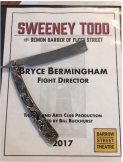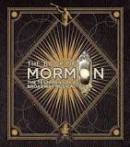Critical Ideas an Answers on Determining Vocal Fach
I cannot count the requests I get from this web-site on vocal fach. How can I tell if a singer is a mezzo or soprano, baritone or tenor? It is a subject of great controversy in terms of importance. Unfortunately, I often spend my time repairing vocal damage as a result of singers being categorized incorrectly. I myself was trained as a tenor when I actually am a lyric baritone. After making the transition to baritone, it took approximately 4 years for my throat muscles to relax completely. As a high school student I instinctively sang along with all the "crooner" recordings. My voice loved the lyric baritone keys; however, every choral conductor wanted me to sing tenor just because I happened to be able to reach a high G. This is a tragic mistake on the part of many choral conductors who do not know the voice well enough to protect young singers from this potentially damaging experience. When a singer comes to me trying to make the transition up to a higher fach, I have two words to say: "BE CAREFUL!" I have seen so many ruined throats from singers trying to be a tenor or soprano when they were actually a lower-voiced singer. It can also be difficult on the voice for a singer to be singing as a lower-voiced singer when in all actuality they are a higher singer. Singers who sing higher tesitura and are a lower voice usually suffer from a high larynx position. Higher singers who sing in a lower fach usually do so with tremendous tongue and larynx depression. Both circumstances are extremely detrimental to vocal health.
Throughout this article, I hope to give teachers and singers some tools with which to determine the correct vocal fach of a singer. There are some gray areas, which are often confusing. Sometimes a lyric mezzo can sound very "sopranoish", especially if the back wall of the throat is not open and the larynx rides slightly high. The same goes for lyric baritones. They can sound dangerously close to a higher voice, especially if the throat is squeezed and the primary resonator (the pharynx) is closed. Often a lyric baritone does not have an extremely long chest register. In fact, some tenors may have a lower and bigger chest register than a lyric baritone. So what are the determining factors in such a situation? (1) vocal timbre and (2) vocal tesitura. If a lyric mezzo or a lyric baritone open the back wall of their throat, the result will NOT be a soprano or a tenor sound quality. Remember "middle voices, such as lyric mezzos or lyric baritone have a specific timbre. Two great examples of career "middle voices" are Frederica van Stade and Thomas Hampson. Neither of these singers is a higher voice. Teachers need to train their ears to be very specific in judging vocal quality. A lyric baritone may have a "tenorish" sound, however, does it ring like a true tenor voice and does it have a true tenor quality within the tone? Does the singer have to "spread the mouth opening" to make a "bright tenor sound"? (this is really a closed throat!) A lyric mezzo may sound light in the upper register. However, when the larynx is appropriately lowered and the voice picks up what I call that "smokey darkness" which only a mezzo has, the teacher might be very suspicious that the singer is really a true mezzo. Often lyric mezzos sound "sopranoish" if they "release the support" (breath resistance) as they go up into the upper register.
Helpful Tools: I have been teaching this technique for well over twenty years and during that time I have taught literally hundreds of singers from all over the world. During that time period, I have come up with several tools that help teachers and singers determine vocal fach.
Mezzo vs. Soprano:
(1) The "ng" arpeggio to determine mezzo vs. soprano: Have the singer vocalize an ascending arpeggio on "ng" with the "tongue-root" wide. If the voice flips dramatically into falsetto quality at high E-flat, this is an indicator that the voice is probably a lower instrument such a mezzo. If the "flip point" is higher such as high F or F-sharp, the singer is probably a soprano. The thicker the cords, the earlier the falsetto flip will occur. It is true that dramatic sopranos may "flip" as early as a mezzo. Then you must listen for timbre and study ease within given tesitura. A soprano will pick up "head resonance" and the voice will "ring" brighter lower in the scale than the mezzo. In my experience, I have found that most dramatic sopranos at one time or another have sung as mezzo sopranos.
(2) Vocal timbre: Have the singer vocalize a "hum" with the tongue between the lips on a 5-tone descending scale. During this "hum" have the singer "stretch the back of the throat separate from the tongue root". Image that the vowel origin occurs in the space behind the tongue. Then have the singer sing the five tone descending scale on the five vowels while keeping this open vowel space in the back of the throat. (tongue must remain forward in the mouth space). The result will be the singer's true vocal timbre. A mezzo will pick up a "dark and smoky" timbre. A soprano will still retain many more high overtones on the descending scale. The difference will be obvious.
Tenor vs. Baritone:
(1) Have the singer vocalize a three-tone scale in the extreme low register. Then have him slide two octaves on a "sirening" function connecting full voice on an umlaut "u" sound. Be sure that the singer keeps enough "i" in the sound while rounding to the "u" shape. Connect as high as possible in full voice. The umlaut "u" will protect the throat and keep the tongue from pulling back. If the singer is a baritone, he will connect only to the high A, possibly up to B-flat. However, the voice will not flip into the mechanism that adds the B-natural or high C because it does not exist. This makes it impossible for the singer to train as a tenor. If the singer flips into the high B-natural or high C or even higher, usually they are indeed a true tenor.
(2) This is the same as #2 in the soprano vs. mezzo section. "Hum" a five tone descending scale while stretching the back wall of the throat. (This is to be done in the lower register) Then sing the five vowels on the descending scale. If the singer is a baritone, the vocal timbre will take on a darker color, what some might call "chest resonance". If the singer is a tenor, the voice will keep much of its upper resonance or "head voice" quality. This is not as "fool proof" as for women. Some tenors can have quite a lot of "chest resonance" in their middle and lower registers. However, if the tenor sings with this "chestier sound" the upper register will suffer greatly.
Important thought: Some singers who choose to stay in the baritone or mezzo range suffer from a "lack of ring in the voice". I know one professional singer in New York who sings as a "mezzo-contralto" which is a term used more often in Europe. Her voice fatigues quickly because she sings on little or no true resonance. The voice has a "pushed down" quality or "depressed larynx" quality. This is abusive singing. She is depressing the larynx with the root of the tongue, an extremely unhealthy vocal production. The voice suffers from hoarseness continually and it is impossible for this singer to gain any degree of stamina. There is also breathiness in her tone. Here is a case of a psychological attachment to "being a low voice" at the expense of vocal health. I also believe that this person has had incorrect instruction and advice. Singing in the correct "fach" is critical to vocal health. My advice to most singers is: "If it feels wrong, it IS WRONG". Vocal fatigue is a "red light" to any singer whether they are professional or amateur. Vocal health is dependent on exercising the voice correctly.
Questions may be directed to info@voiceteacher.com
(C) 2000 by David Jones
















